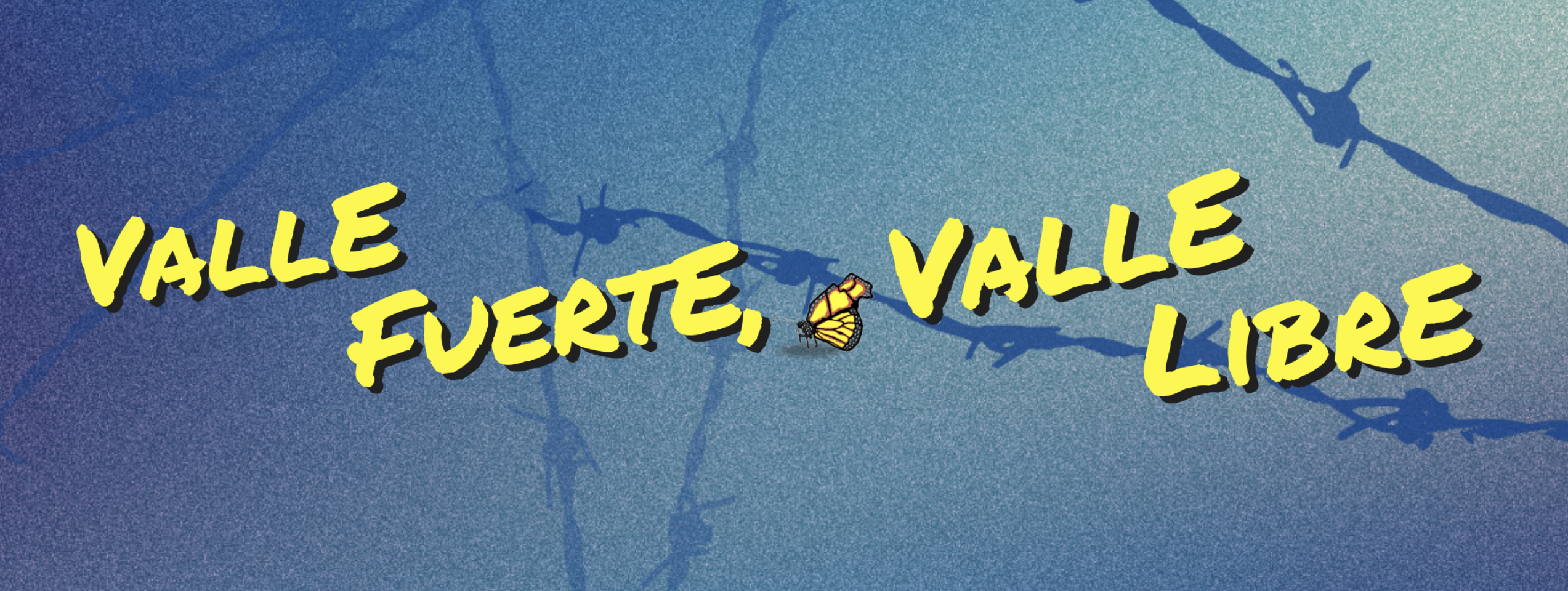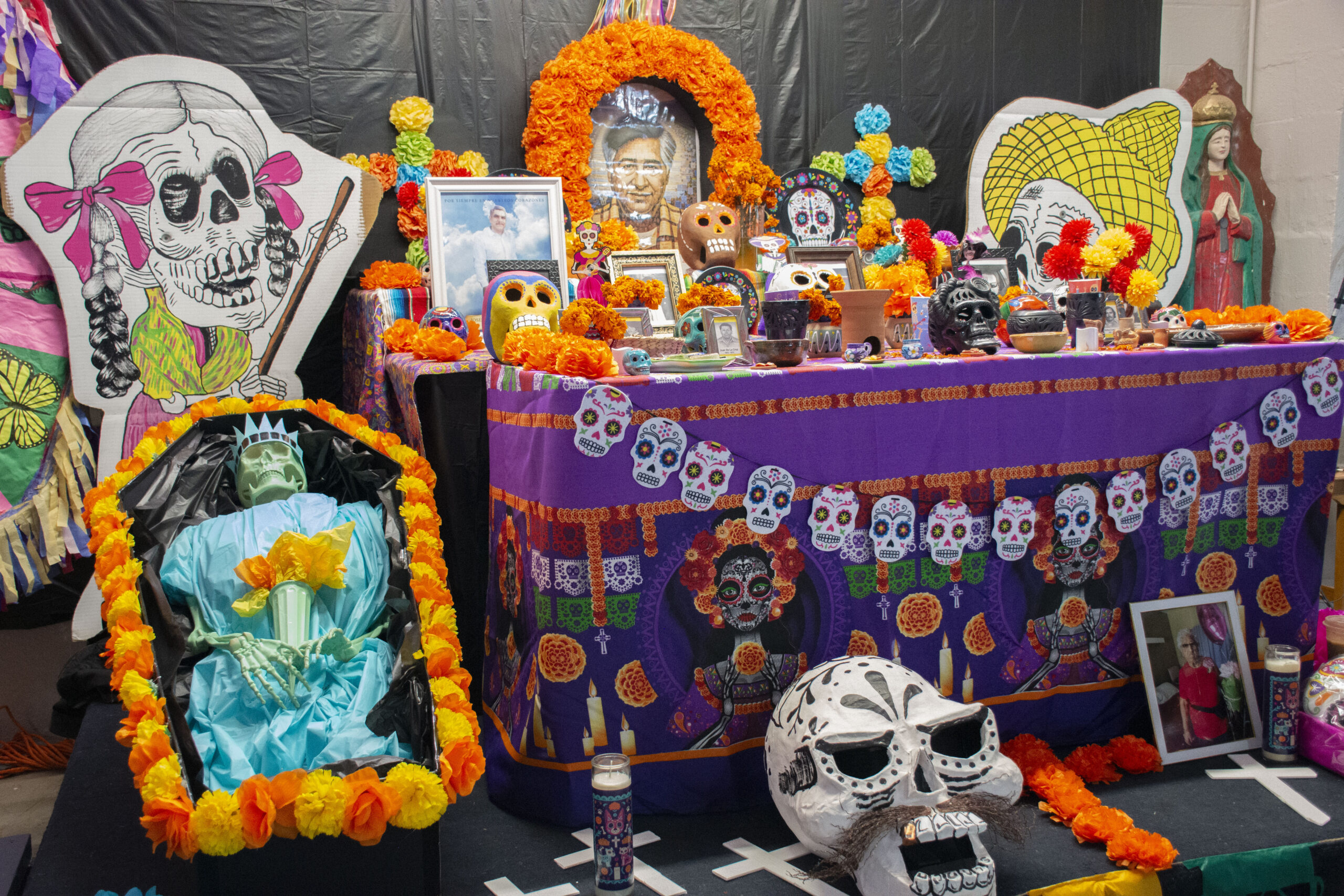Engaging Colonia Residents' Collective Expertise in Campaign for Public Light
Thanks to TA received as part of our CCHE grant, LUPE has been using popular education methods in our organizing with low-income immigrant communities. We started monthly leadership development trainings at three of our five offices, where our leaders have had the opportunity to learn more about our campaigns and develop their critical thinking and skills. This has increased participation in both campaign activities and decision making for the campaign.
Popular Education
 Popular Education uses pictures and activities to encourage discussion and reflection on the issues affecting our lives. Popular education is based upon the principles that all people have knowledge, based on their experiences in life, and all people have dignity as human beings. Through reflection, participants bring their own knowledge to the educational process, becoming both students and teachers. Popular Education has as a distinctive element the political intention of building a knowledge that turns into collective action for liberation and social transformation.
Popular Education uses pictures and activities to encourage discussion and reflection on the issues affecting our lives. Popular education is based upon the principles that all people have knowledge, based on their experiences in life, and all people have dignity as human beings. Through reflection, participants bring their own knowledge to the educational process, becoming both students and teachers. Popular Education has as a distinctive element the political intention of building a knowledge that turns into collective action for liberation and social transformation.
Popular Education helps us identify, through a democratic process based in reflection, the change we want and helps us animate our community to participate in that change. Colectivo Flatlander tells us: “If we eliminate the reflection part, we are reducing organizing to mobilizing, if we eliminate the action part, we are just intellectualizing the struggle.”
They continue: “We are looking to construct Power: personal, community and popular power; to transform our lives and our reality, to construct a more just and humane world for everyone. This is our intention, but the intention needs a path.” An organizing strategy built on principles of popular education is that path.
Check out more on Popular Education on Colectivo Flatlander’s website.
CCHE Power Analysis Pop-Ed
Using our power analysis created with CCHE guidance, we developed a series of pop-ed based trainings for our leaders related to the main power holders in our campaign. The County Commissioners have decision making power to use their budget to funding installing streetlights in colonias in their precinct. The pop-ed trainings allowed our leaders to better understand the power that commissioners have, as well as the power that colonia residents have to impact commissioners’ decisions.
County Commissioners Trainings
Our first training was to introduce the power holders. Most people do not know who their elected officials are or what power they have. We used popular education theater, images of the officials, and discussion to teach the positions and power of elected officials.
Once our leaders knew who the power holders were, they needed to learn how to influence them. Our theater ended with the question, “what do I need in order to run for office and be elected?” This allowed our leaders to brainstorm the primary needs of elected officials, which include votes, campaign donors, a positive image in the media and lots of publicity.
Power Analysis Tug-of-War
 With a new understanding of the needs of elected officials, our leaders were then able to brainstorm how they could use organizing in order to impact the decisions of their representatives. To facilitate this process, we developed a tug-of-war activity that illustrated in a very participatory manner the needs of the County Commissioners and the various ways that communities can impact those needs.
With a new understanding of the needs of elected officials, our leaders were then able to brainstorm how they could use organizing in order to impact the decisions of their representatives. To facilitate this process, we developed a tug-of-war activity that illustrated in a very participatory manner the needs of the County Commissioners and the various ways that communities can impact those needs.
In the tug-of-war, our leaders were able to act out the power they have on elected officials and counteract the power that campaign donors have. The tug-of-war activity allowed our leaders to brainstorm their own power and discuss how to use that power in order to pull the county commissioner over to the side of colonia residents.
Community Development Funds Budgets
Our most successful training was designed to explain the complicated subject of the Community Development Block Grants budgets, which are distributed equally to the county commissioners, but then divided up as the commissioners see fit. With little oversight and accountability, oftentimes these funds are used to pave roads that benefit business owners rather than to fund projects benefiting low-income colonia residents.
In order to explain the budgets of each precinct, we came up with the idea of making a pie graph that actually looked like a pie. The pie would be cut into pieces and distributed among leaders. Each person would get a piece, read what it said and we would discuss as a group what that meant. Then each person would place the piece of pie on a large pie pan. After all pieces were placed, facilitators would lead a discussion that would help leaders draw out comparisons between larger and smaller portions of money and larger and smaller pieces of the pie.
Facilitators would then ask leaders to think about how we can get a bigger piece of the pie. Participants were asked, how can we influence the Commissioners to put a larger piece of the pie toward colonia improvements? This discussion allowed residents to think about what kinds of power they have and brainstorm ways to use their power to pressure County Commissioners.
Conclusion – Con LUPE, ¡Si Se Puede!
Since implementing monthly leadership development trainings using popular education techniques, participation of our leaders in campaign activities and decision making has increased significantly. All LUPE leaders who continue participating in the monthly trainings learn how the distribution of economic resources functions. These leaders are better prepared to speak with their elected officials.

Residents of colonia Linda Vista pose after asking County Commissioners for public lighting.
An anecdote from November of 2011, three months after beginning these trainings, illustrates the impact they have had. The presentation of a colonia resident at the beginning of a November Commissioners Court meeting started a conversation on public lighting with Mingo Villarreal, assistant of Precinct 3 Commissioner Joe Flores, who told the residents of colonia Linda Vista that “there is no money” for streetlights.
Having studied the Hidalgo County Community Development funds, LUPE leaders did not give up. “You get the budget every year,” said Antonia Garcia, Linda Vista resident and LUPE leader. “Why not give a percentage for public lighting each year since it is a necessary priority of the constituents of precinct 3?”
In response, Mingo Villarreal insisted, “A veces, no se puede.” Sometimes it is not possible.
Armed with knowledge from LUPE’s CDBG funds workshops, Antonia Garcia responded, “We have joined with LUPE, and they have taught us that yes, it can be done!”
¡Sí Se Puede!






